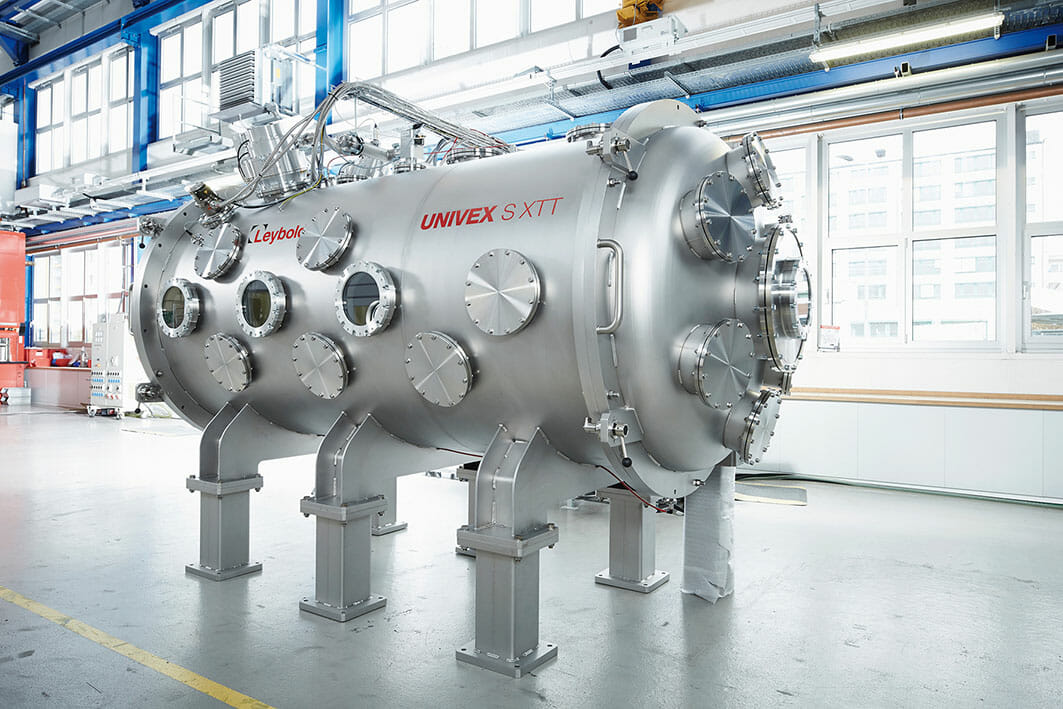Space Simulation – Leybold supplies the technology
14. November 2019, Cologne – Space missions and projects can only be successful if the
materials and components used are first tested on Earth under space conditions. Leybold
delivers the technology as an integrated supplier – up to the ultra-high vacuum.
Space missions are among mankind’s most expensive research projects and can quickly cost
several billion Euros. In order to ensure that the corresponding components also function in the
vacuum conditions prevailing in space, they are technically simulated on Earth using suitable
pumps and systems.
Vacuum specialist Leybold will present its product solutions for the development, manufacture
and testing of spacecraft, satellites and space-related technologies at Space Tech Expo Europe,
which will take place from 19 to 21 November in Bremen. Leybold offers a wide range of
standardized and specific system solutions with integrated fore vacuum and high vacuum pumps
– individually tailored to the respective requirements.
A major application is, for example, the simulation and testing of electrical space propulsion
systems for spacecrafts. For this purpose, ionized gas particles are accelerated by an electric
field. Modern ion engines generate a gas flow of 0.1 to 10 mg/s. In order to maintain a good high
vacuum at this considerable flow rate in the test chambers, a very high suction capacity is required
– often in the range of 10,000 to 100,000 l/s.
The experimental chamber systems required for this to produce the space conditions exist in all
sizes: from a few liters for the testing of small objects such as printed circuit boards to several
thousand cubic meters for proving the suitability of entire spaceships for space travel. The noble
gas Xenon is the heaviest stable noble gas and is used in most cases for ion engines due to the
high resulting thrust. However, the advantage of a large drive mass is a great challenge for
vacuum pumps. One of the reasons is the poor thermal conductivity of Xenon gas, which leads
to critical temperature increases in gas transfer vacuum pumps such as turbomolecular pumps.
In addition, many large turbomolecular pumps would be required to achieve the required high
pumping speeds.
Leybold has developed an optimized and simple cryogenic solution for Xenon pumping. The
strong single-stage cold heads of the Gifford-McMahon type carry metal discs that condense the
Xenon gas with a pumping speed at the edge of the theoretical limit.
Since it is necessary to reach a final pressure in the range of 10-5 Pa – far below the process
pressure – before operating an ion engine, these applications also require a correspondingly
powerful system of pre- and high-vacuum pumps in order to remove residual gases such as
nitrogen, oxygen, etc. The pressure must be controlled by proper instruments throughout the
testing process. Leybold provides all the necessary technology as well as technical consultancy,
calculation, and design of the systems from a single source.
The demand for such vacuum test chambers increases as the number of Xenon ion engines for
different space missions rises. Flexibility and time-to-market is the key factor for the success of
these missions.







